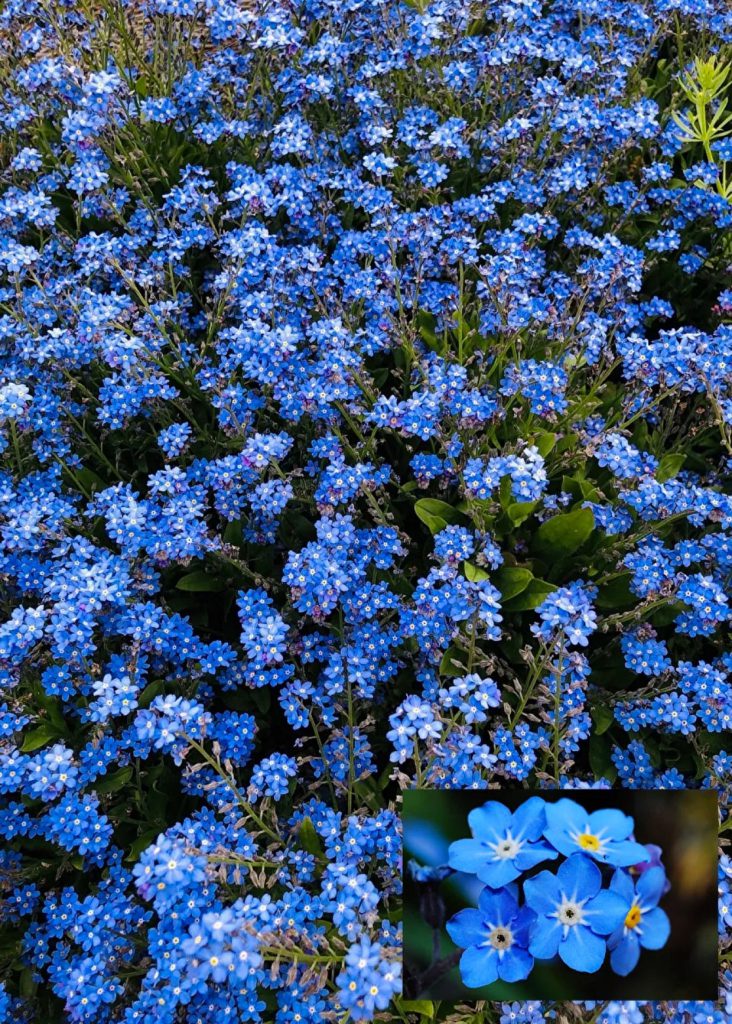
A day when the brilliance of the sun becomes stronger and stronger. On the way home from enjoying the colorful flowers blooming in the park, a group of forget-me-nots that shine brightly in a corner of the bush is in bloom. Forget-me-nots when the sun goes down and it is getting darker are more noticeable than in the daytime. The last word “Vergiss-mein-nicht!” left by the main character Rudolph in the legend of the tragic love of medieval Germany for his lover Bertha becomes “Foget-me-not” and further becomes “Wasure-na-gusa”. In Germany as well as in Western countries, it has been widely known as a symbol of fraternity and sincerity since ancient times, and in the United States, it is also the state flower of Alaska. The Japanese translation of “Forget-me-not” was by Takiya Kawakami, a botanist from the Meiji era. There are many songs around the world with the title of forget-me-not.
日の輝きがますます強くなる一日。公園に咲く色とりどりの花を満喫しての帰り道、薮の中の一角に明るく映える一群れの勿忘草が咲いています。日も落ちて、やや薄暗くなり掛けた頃の勿忘草は昼間より目立ちます。中世ドイツの悲恋伝説に登場する主人公ルドルフが恋人ベルタに残した最期の言葉”Vergiss-mein-nicht!“(僕を忘れないで)は”Foget-me-not”になり、さらに”勿忘草”になりました。ドイツはもちろん、欧米諸国では、古来より友愛や誠実の象徴として広く親しまれ、アメリカ合衆国ではアラスカ州の州花にもなっています。日本語「勿忘草」に翻訳したのは、明治の植物学者川上滝弥です。勿忘草を題名にした歌も世界中に数多くあります。
